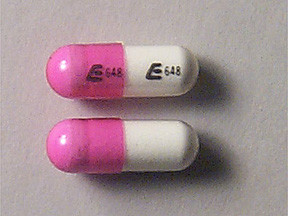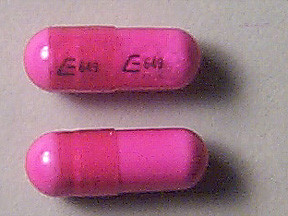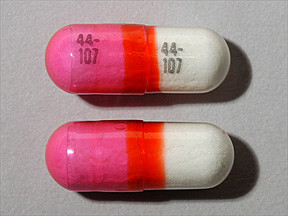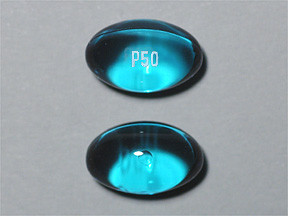DIPHENHYDRAMINE - ORAL
PHONETIC PRONUNCIATION: (DYE-fen-HYE-dra-meen)
COMMON BRAND NAME(S): Benadryl, Genahist, Naramin, Sominex, Unisom
GENERIC NAME(S): diphenhydramine HCl
Uses
USES: Diphenhydramine is an antihistamine used to relieve symptoms of allergy, hay fever, and the common cold. These symptoms include rash, itching, watery eyes, itchy eyes/nose/throat, cough, runny nose, and sneezing. It is also used to prevent and treat nausea, vomiting and dizziness caused by motion sickness. Diphenhydramine can also be used to help you relax and fall asleep. This medication works by blocking a certain natural substance (histamine) that your body makes during an allergic reaction. Its drying effects on such symptoms as watery eyes and runny nose are caused by blocking another natural substance made by your body (acetylcholine). Cough-and-cold products have not been shown to be safe or effective in children younger than 6 years. Therefore, do not use this product to treat cold symptoms in children younger than 6 years unless specifically directed by the doctor. Some products (such as long-acting tablets/capsules) are not recommended for use in children younger than 12 years. Ask your doctor or pharmacist for more details about using your product safely. These products do not cure or shorten the length of the common cold and may cause serious side effects. To decrease the risk for serious side effects, carefully follow all dosage directions. Do not use this product to make a child sleepy. Do not give other cough-and-cold medication that might contain the same or similar ingredients (see also Drug Interactions section). Ask the doctor or pharmacist about other ways to relieve cough and cold symptoms (such as drinking enough fluids, using a humidifier or saline nose drops/spray).
How to use DIPHENHYDRAMINE - ORAL
HOW TO USE: Follow all directions on the product package. If your doctor has prescribed this medication, take it as directed. If you are uncertain about any of the information, consult your doctor or pharmacist. Take the tablet, capsule, or liquid form by mouth with or without food. Measure liquid forms of this medication using a special measuring device/spoon. Do not use a household spoon because you may not get the correct dose. If you have a single-dose form of this medication (such as a single-use whistle), you do not need to measure the dose. The rapidly-dissolving tablet or strip should be allowed to dissolve on the tongue and then swallowed, with or without water. The chewable tablets should be chewed thoroughly before being swallowed. The dosage is based on your age, medical condition, and response to treatment. There are many brands and forms of diphenhydramine available. Read the dosing instructions carefully for each product because the amount of diphenhydramine may be different between products. Do not increase your dose or take this medication more often than directed. To prevent motion sickness, take your dose 30 minutes before starting activity such as travel. To help you sleep, take your dose about 30 minutes before bedtime. If you continue to have difficulty sleeping for longer than 2 weeks, contact your doctor. Tell your doctor if your condition does not improve or if it worsens.
Side Effects
Precautions
Interactions
Overdose
Images

- color
- pink
- shape
- oblong
- imprint
- E 648, E 648

- color
- pink
- shape
- oblong
- imprint
- E 648, E 648

- color
- pink
- shape
- oblong
- imprint
- E 649, E 649

- color
- pink
- shape
- oblong
- imprint
- E 649, E 649

- color
- pink
- shape
- oblong
- imprint
- 44- 107, 44- 107

- color
- pink
- shape
- oblong
- imprint
- 44- 107, 44- 107

- color
- pink
- shape
- oblong
- imprint
- 44- 107, 44- 107
Reviews
Faq for DIPHENHYDRAMINE - ORAL
Diphenhydramine is an antihistamine that is commonly used to relieve symptoms of allergies, itching, and common cold.
Diphenhydramine works by blocking the effects of histamine, a substance produced by the body in response to allergies.
Diphenhydramine can be used to treat allergies, hay fever, itching caused by insect bites or skin disorders, common cold symptoms, and to help induce sleep.
Common side effects of diphenhydramine include drowsiness, dry mouth, dizziness, and blurred vision. It may also cause constipation or difficulty urinating in some individuals.
Diphenhydramine can be used in children, but the dose and frequency should be determined by a healthcare professional.
It is recommended to consult with a healthcare provider before using diphenhydramine during pregnancy or breastfeeding, as it may affect the baby.
Diphenhydramine may interact with certain medications, including sedatives, tranquilizers, and monoamine oxidase inhibitors (MAOIs). It is important to inform your healthcare provider about all the medications you are taking.
Diphenhydramine is usually taken orally in the form of tablets or liquid. It is important to follow the dosage instructions on the packaging or as prescribed by your healthcare provider.
Although diphenhydramine is not typically considered addictive, it may cause physical dependence if used regularly for a prolonged period. It is recommended to use it as directed and avoid excessive or long-term use.
Disclaimer
IMPORTANT: HOW TO USE THIS INFORMATION: This is a summary and does NOT have all possible information about this product. This information does not assure that this product is safe, effective, or appropriate for you. This information is not individual medical advice and does not substitute for the advice of your health care professional. Always ask your health care professional for complete information about this product and your specific health needs.


No Reviews Yet